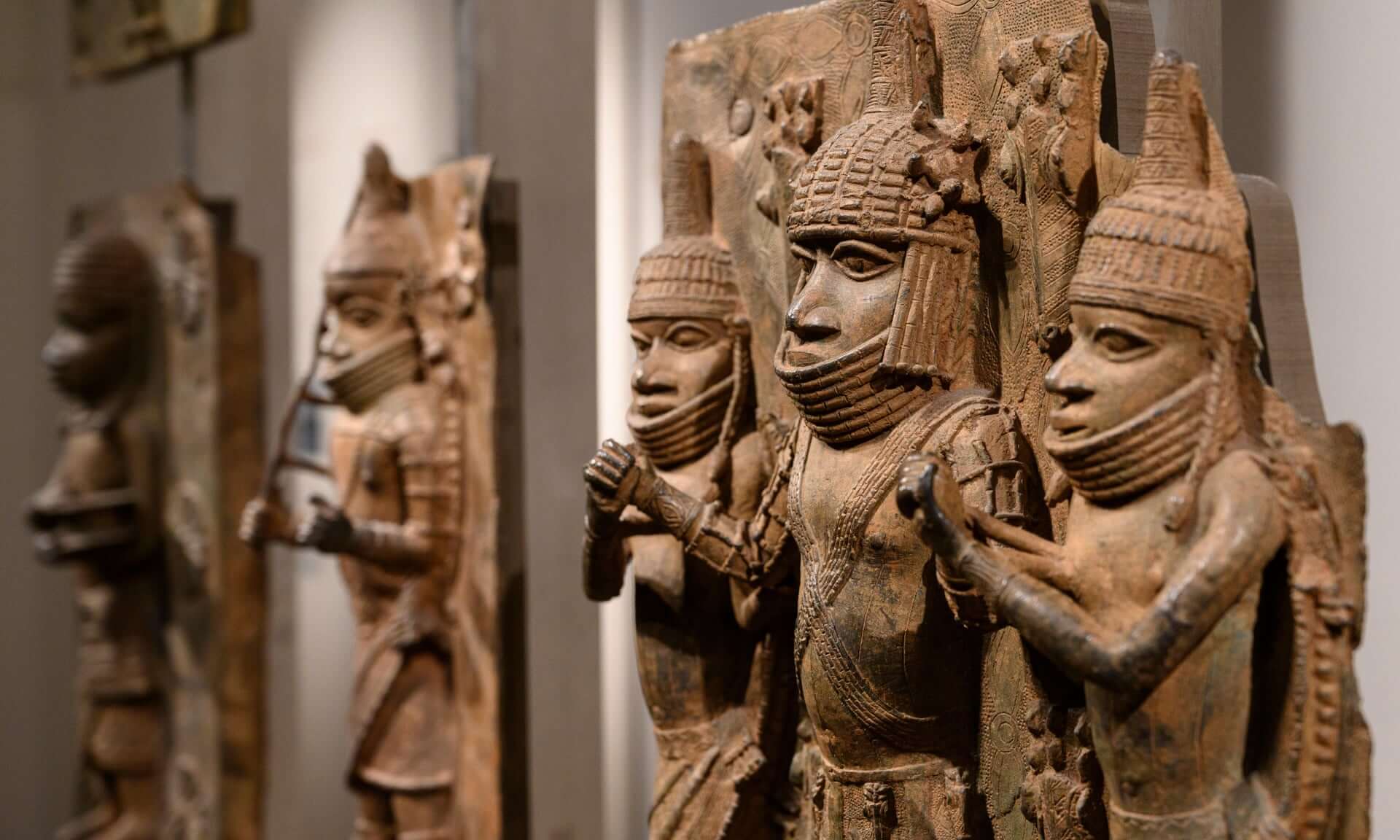On Wednesday, the Prussian Cultural Heritage Foundation (SPK), which looks after museums in Berlin, released a statement that its Board of Trustees had “exchanged views” on returning colonial artefacts to their countries of origin, such as the Benin bronzes from Nigeria. In fact, the Board has been holding talks with “stakeholders” in Nigeria, including the Benin Dialogue Group, for some time now.
The museum’s 530 artefacts largely date back to the ancient Kingdom of Benin, which ruled over huge swathes of land that lie in what is modern-day southern Nigeria, from the 16th to 18th century. They include the Benin bronzes, bronze reliefs, carved ivory and other sculptures that were stolen by British troops in 1897 and have since made their way to museums across the West.
The Board of Trustees within federal and state governments joined hands with directors of ethnological museums across Germany to call on SPK President Hermann Parzinger to develop a plan that could include returning the artifacts to Nigeria, recognising that holding onto them is “regarded as unjust […] according to today’s assessment”. The statement stopped short of definitively saying that the bronzes would be returned and instead noted that it is merely an “option”.
These developments have caught the attention of German Foreign Minister Heiko Maas, who said, “The question of the return of cultural goods is part of dealing honestly with colonial history. It is a question of justice.” He added, “In the case of the Benin bronzes, we are working with those involved in Nigeria and Germany to establish a common framework, especially in the museum cooperation with the planned Museum of West African Art in Benin City.”
In fact, just last week, the head of the German foreign ministry’s culture department, Andreas Görgen, met with Edo State Governor Godwin Obaseki in Benin city over the artefacts. Their talks centred around transferring ownership of the artefacts to the Nigerian government, who will then turn over the artefacts to the Edo Museum of West African Art, which is situated where the former palace was built.
These latest discussions form part of Germany’s efforts to atone for its colonial legacy. In fact, it is also engaging in ongoing discussions with Namibia over genocide reparations for crimes committed by its troops between 1904 and 1908, during which time more than 100,000 people were killed in the former German colony. Its reparation efforts also include the return of stolen artefacts.
For example, in 2019, Germany returned a stolen 15th-century artefact called the Stone Cross to Namibia. At the time, German Minister of State for Media and Culture Monika Gruetters said described the action as “a clear signal that we are committed to reappraising the colonial past”.
Germany’s moves to return colonial artefacts to Nigeria has now placed pressure on the United Kingdom, which stole the artefacts to begin with, to do the same.
Germany Developing Plan to Return Stolen Artefacts From Colonial Era to Nigeria
The stolen artefacts include the Benin bronzes, bronze reliefs, carved ivory and other sculptures that were stolen by British troops in 1897 and have since made their way to museums across the West.
March 26, 2021

SOURCE: ADAM EASTLAND / ALAMY
